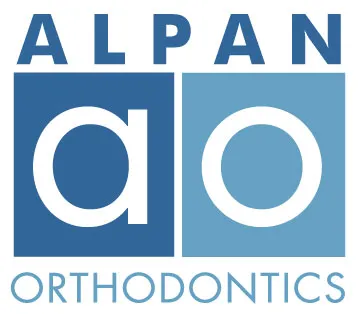LAS VEGAS, NEVADA – Some people have nightmares that their teeth have shifted and gotten out of alignment after orthodontic treatment.
Those nightmares could easily become reality if patients do not cooperate with the retention phase of orthodontics.
That usually means wearing a retainer, which depending on the case, means wearing one full time and eventually tapering down to wearing the retainer at night or several times a week. Dr. David Alpan offers his patients a variety of retainer options at Aesthetic Orthodontics, but Vivera Retainers are becoming more popular than ever.
“Retainers are an essential part of the treatment because periodontal ligaments take almost a year to solidify into their new positions after your braces are removed,” says Dr. Alpan, who is a Larchmont pediatric orthodontics provider.
Align Technology, the makers of the Invisalign system, designed Vivera, a clear thermoplastic retainer designed to be used after completing orthodontic treatment. Vivera uses the same advanced fabrication technology used for the Invisalign system aligners to give patients an exact, seamless and comfortable fit. According to Align Technology, lab tests show that many leading clear thermoplastic materials from which retainers are made begin to deform in as little as two months of simulated wear. That is why Vivera is actually a series of four sets of retainers mailed to the patient’s home throughout the year to keep teeth in the final aligned position.
“Besides being nearly invisible, the retainer is more durable than other clear retainers and can be used with Invisalign system patients or any other orthodontic patients,” Dr. Alpan says who is a Larchmont invisible braces provider.
Other Types Of Retainers
There are other types of retainers available at the practice. A Hawley retainer is an acrylic arch that sits in the palate-the roof of the mouth-and has a metal wire that surrounds the teeth and keeps them in place. The wires are adjustable and can be used to tweak teeth movement if deemed necessary by the orthodontist.
A vacuum-formed retainer, sometimes referred to by a brand name Essix, is a thin, clear retainer made out of a polypropylene or polyvinylchloride material. Like the Vivera, it fits over the entire arch of teeth and is similar to an aligner tray, although it is not used for actual treatment.
The third type of retainer is a fixed retainer, one that usually consists of a wire bonded to the lingual side of the lower incisors. Fixed lingual retainers‘ cost is comparable to Vivera’s, but many patients complain that dental care is more difficult with the wire in the way and are less likely to floss.
Taking Care Of A Retainer
Retainers live in the mouth, which means they are subject to the bacteria, plaque and leftover food particles just like teeth and braces- such as Damon Clear braces– and need to be cleaned just as often. When brushing their teeth, patients should clean their retainer as well and disinfect once a day or at least once a week.
“Not taking care of a retainer properly will result in tartar and biofilm buildup, which is what makes a retainer smell bad and may even make you sick,” says Dr. Alpan, who is also a specialized TMD dentist.
Here are some general rules of thumb for taking care of a retainer to make it last:
- Keep retainers in their case when not in use-not in a napkin, not in a pocket, not on the side table-in their case.
- Storing retainers in distilled water when they are not in use keeps them moist and does not allow tartar and biofilm to adhere to the material.
- Hawley and fixed retainers can be brushed with toothbrush and toothpaste, but the clear retainers will scratch over time, so clean them using a cleanser or Q-tip and soap.
- Use a denture cleanser, such as Efferdent or Polident, or an anti-bacterial retainer cleaner, such as Retainer Brite, Sonicbrite and Dentasoak, to kill germs and prevent white plaque from building up on the retainer.
- Use warm water when disinfecting or cleaning, but not hot water because retainers can warp.
- Before putting a retainer back in the mouth, thoroughly rinse with water.


